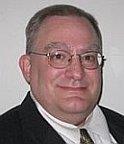What are Allergens
 |
John E. Rooney, M.D., Ph.D., F.A.C.P., F.A.A.A.A.I Board Certified in Allergy, Asthma and Immunology Clinical Assistant Professor of Medicine – Hofstra North Shore LIJ School of Medicine Associate Physician – ENT Associates of New York (www.nyents.com) About the author: Medical Degree at Jefferson Medical College, Philadelphia, PA; Residency at Barnes Hospital Washington University, St. Louis, MO; Fellowship in Allergy & Immunology at the Long Island Jewish Medical Center (LIJ), New Hyde Park, NY. Board Certified. Affiliated with: North Shore LIJ; North Shore University Hospital |
Allergens are ordinary proteins that are found naturally in the environment and which are, most of the time, completely harmless. However, in people who are sensitized, these ordinary proteins can produce some extraordinarily nasty symptoms. There is nothing inherently dangerous, for example, about ragweed. Many people could roll around naked in the stuff and be none the worse for wear (although perhaps somewhat embarrassed if caught). People who are allergic will unfortunately have quite a different experience. The tiny particles floating in the air will cause them to sneeze, itch and wheeze. Blocked noses and clogged sinuses will ensue. The immune system of an allergic person has decided, incorrectly, that ragweed pollen is a dangerous substance that must be fought off like an infectious bacterium. Many of the symptoms of allergy are therefore similar to those of a cold.
Trees, grasses and weeds all produce pollen which they release to the four winds so that their species can diversify and spread. Animals, even our beloved dogs and cats, produce enzyme proteins that get on their fur and are present in the air we breathe. And, of course, there are the hordes of invisible mites, molds and insects which exist around us every day. We unwittingly take in their waste products with every breath, and these, too, can be powerful allergens.
What can people do about this army of microparticles assaulting them at every turn? Not breathing does not seem practical. Some people afflicted by the misery of allergies will walk around wearing particle filtration masks, risking personal humiliation for the sake of symptom relief. But there is an easier, simpler solution. The human nose is designed brilliantly to filter the air we breathe. Inside and invisible to the casual observer are a multitude of twists and turns through which inhaled air must pass. These surfaces are covered with sticky mucus and fine hairs which beat constantly to remove offending particles like allergens. Unfortunately, even the best designed system can be overwhelmed.
Irrigating the nose with a salt water solution helps clear away the particles which, left unchecked, will cause allergies. The human body is composed largely of a 0.9% solution of sodium chloride in water, and rinsing with a nasal saline solution dramatically reduces the allergens to which one is exposed. I recommend that my patients spend a few minutes three times per day to rinse their allergies away.
Dr. Rooney is an Associate Physician at ENT Associates of NY (www.nyents.com) and an Assistant Professor of Clinical Medicine at Hofstra – North Shore LIJ School of Medicine.
(285)